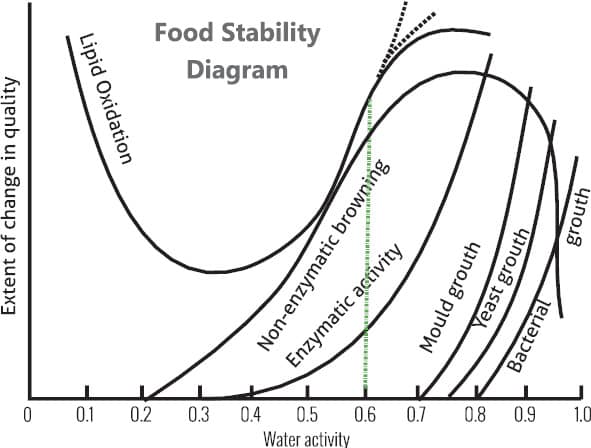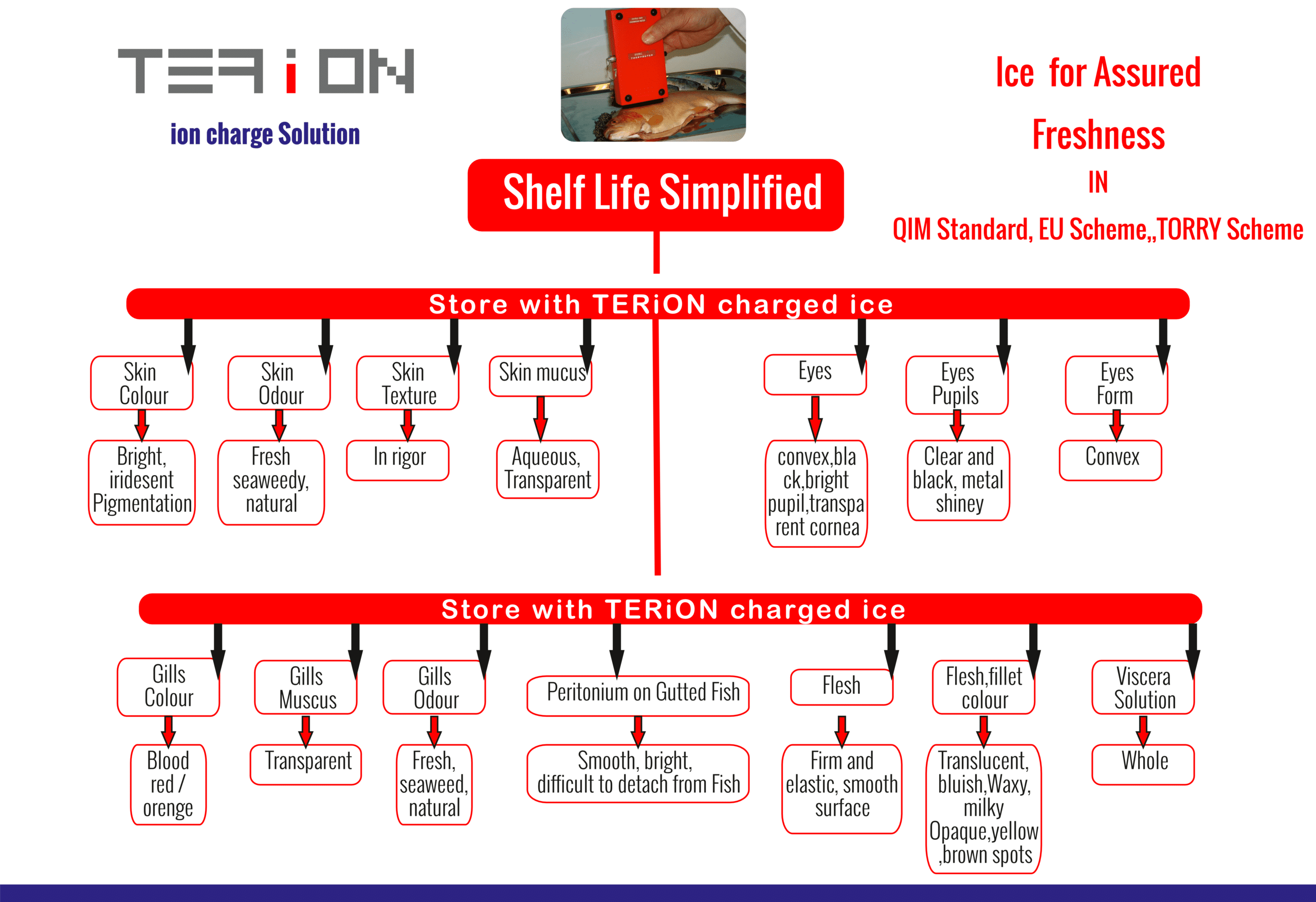Food Storage
Product Code: TIS – FS – 01000.
Dosage : 10ml/ltr. i.e 1% of R.O Water used.
The perishability of seafood and its average shelf life in ice storage can vary widely depending on factors such as the type of seafood, initial freshness, storage temperature, handling practices, and the presence of preservatives.
Fish Storage in TERiON ice
![]() From Catch to Consumption Storage in all channels of Distribution.
From Catch to Consumption Storage in all channels of Distribution.
Ice for Assured Freshness
![]() Type of Seafood
Type of Seafood
Different types of seafood have varying levels of perishability. For example, delicate fish like salmon or cod might have a shorter shelf life compared to shellfish like clams or oysters.
![]() Initial Freshness
Initial Freshness
Fresher seafood will have a longer shelf life. Seafood that is harvested, handled, and stored properly from the start will maintain better quality and last longer.
![]() Storage Temperature
Storage Temperature
The temperature at which seafood is stored is crucial. Ice storage helps maintain low temperatures, which slows down the growth of spoilage microorganisms. Generally, seafood should be stored at or below 32°F (0°C) to prolong its shelf life.
![]() Handling Practices
Handling Practices
Proper handling, including rapid chilling after harvest and careful processing, can help extend shelf life.
![]() Packaging
Packaging
Effective packaging that prevents exposure to air and moisture can help preserve seafood quality.
![]() Species-Specific Factors
Species-Specific Factors
Certain species have specific characteristics that influence their shelf life. For example, high-fat fish like mackerel might have a shorter shelf life due to the risk of rancidity.
![]() Ion interaction Principle
Ion interaction Principle
TERiON (Anions), being negatively charged ions, can interact with positively charged molecules in sea food components. These interactions can affect the chemical composition and physical properties of the food, including its vapor pressure. For example, anions can participate in chemical reactions with volatile compounds, altering their volatility and subsequent evaporation rates.
The extension of shelf life for seafood stored in TERiON ice can vary depending on several factors, including the specific type of seafood, initial freshness, temperature control, and handling practices.
TERiON (Anions), which are negatively charged ions, can interact with other compounds in seafood, affecting their vapor pressure read as water activity and thus influencing factors like moisture content, aroma, and flavour. By regulating Water activity, anions can contribute to preserving the overall quality and freshness of seafood, helping to extend its shelf life and maintain desirable characteristics.

